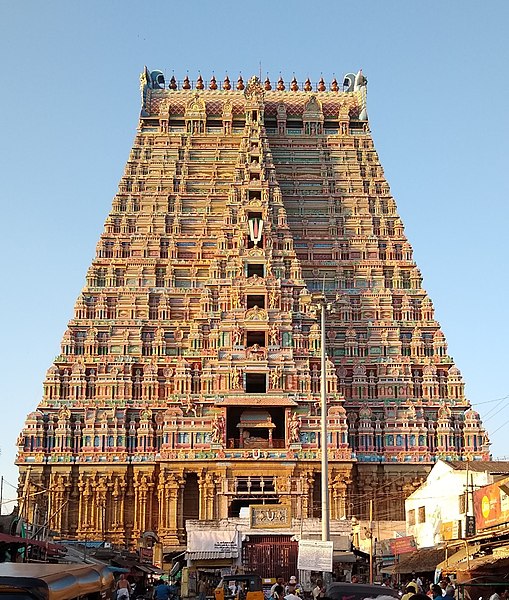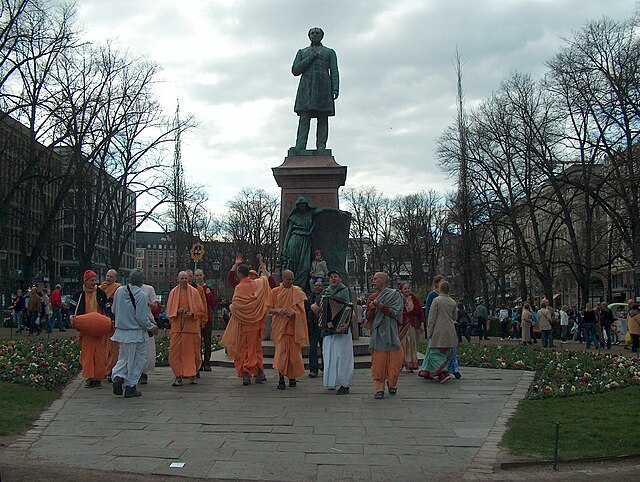Hinduism in Southeast Asia
Hinduism in Southeast Asia had a profound impact on the region's cultural development and its history. As the Indic scripts were introduced from the Indian subcontinent, people of Southeast Asia entered the historical period by producing their earliest inscriptions around the 1st to 5th century CE. Today, Hindus in Southeast Asia are mainly Overseas Indians and Balinese. There are also Javanese and Balamon Cham minority in Cambodia and south central Vietnam who also practice Hinduism.
The Hindu Balinese temple offering in Bali, Indonesia.
Hindu devotees during Thaipusam festival in Singapore.
Statue of Buddha at Angkor Wat converted from statue of Visnu.
Angkor Wat, in Cambodia, is one of the hundreds of ancient Hindu temples in Southeast Asia.
Hinduism is an Indian religion or dharma, a religious and universal order by which its followers abide. The word Hindu is an exonym, and while Hinduism has been called the oldest religion in the world, it has also been described as sanātana dharma, a modern usage, based on the belief that its origins lie beyond human history, as revealed in the Hindu texts. Another endonym for Hinduism is Vaidika dharma.
Srirangam Ranganathaswamy Temple dedicated to the Hindu deity Vishnu is said to be worshiped by Ikshvaku and the descendants of (Ikshvaku Vamsam).
Hindus in Ghana celebrating Ganesh Chaturti
Swami Vivekananda was a key figure in introducing Vedanta and Yoga in Europe and the United States, raising interfaith awareness and making Hinduism a world religion.
The Hare Krishna group at the Esplanadi Park in Helsinki, Finland








